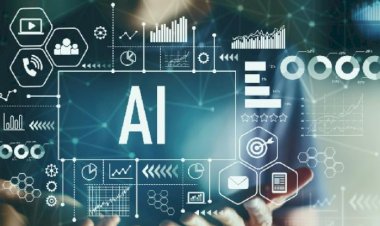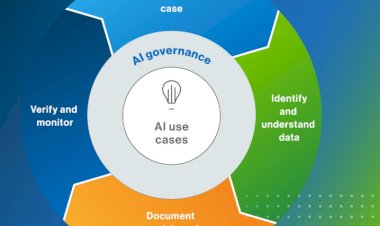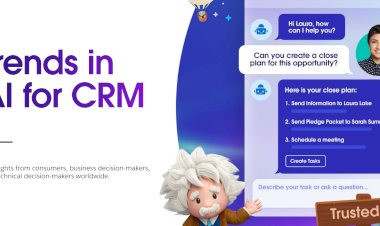How AI is Revolutionizing Marketing Automation

The landscape of marketing is undergoing a profound transformation, driven by the rapid advancement of Artificial Intelligence (AI). AI is not just a buzzword but a powerful force reshaping how businesses approach marketing automation. From optimizing campaign strategies to enhancing customer engagement, AI is revolutionizing marketing automation by enabling more precise, efficient, and personalized interactions. In this blog, we’ll explore how AI is transforming marketing automation and the benefits it brings to businesses and consumers alike.
1. Enhancing Personalization at Scale
1.1. Predictive Analytics
AI-powered predictive analytics tools analyze historical data and customer behaviors to forecast future trends and preferences. This enables marketers to:
- Segment Audiences: Create highly targeted audience segments based on predicted behaviors and interests.
- Personalize Content: Tailor marketing messages, offers, and recommendations to individual customers with a high degree of accuracy.
Predictive analytics ensures that marketing efforts are not only relevant but also timely, leading to improved engagement and conversion rates.
1.2. Dynamic Content Delivery
AI algorithms can analyze user interactions and preferences in real-time, allowing for dynamic content delivery. This means that:
- Website Personalization: Websites can display personalized content, product recommendations, and offers based on individual user behavior.
- Email Campaigns: Emails can be customized with content and offers that match the recipient’s interests and past interactions.
Dynamic content delivery enhances the relevance of marketing communications and increases the likelihood of a positive response from customers.
2. Automating Routine Tasks
2.1. Intelligent Lead Scoring
AI can automate lead scoring by evaluating and ranking leads based on their likelihood to convert. This involves:
- Behavioral Analysis: Assessing user interactions, such as website visits and content downloads, to determine lead quality.
- Predictive Modeling: Using historical data to predict which leads are most likely to become customers.
Intelligent lead scoring ensures that sales teams focus their efforts on the most promising leads, improving efficiency and conversion rates.
2.2. Chatbots and Virtual Assistants
AI-powered chatbots and virtual assistants are revolutionizing customer service and support by:
- Handling Inquiries: Providing instant responses to customer queries and issues 24/7.
- Guiding Users: Assisting users through the sales funnel by offering product recommendations and answering questions.
These AI tools enhance customer experiences, reduce response times, and free up human resources for more complex tasks.
3. Optimizing Campaign Performance
3.1. A/B Testing and Optimization
AI can automate and optimize A/B testing by:
- Testing Variations: Running multiple variations of marketing assets, such as emails and landing pages, to determine the most effective elements.
- Analyzing Results: Using AI to analyze performance data and identify the best-performing variations in real-time.
Automated A/B testing ensures that marketing campaigns are continuously optimized for maximum effectiveness and ROI.
3.2. Real-Time Analytics
AI-driven real-time analytics tools provide insights into campaign performance, allowing marketers to:
- Monitor Metrics: Track key performance indicators (KPIs) and identify trends as they happen.
- Adjust Strategies: Make data-driven adjustments to campaigns based on real-time insights.
Real-time analytics enable marketers to respond quickly to changing conditions and optimize their strategies for better results.
4. Enhancing Customer Engagement
4.1. Behavioral Targeting
AI can analyze customer behavior and interactions to deliver more targeted marketing messages. This involves:
- Behavioral Tracking: Monitoring user activities, such as browsing history and purchase behavior.
- Personalized Offers: Sending tailored offers and recommendations based on individual user behavior.
Behavioral targeting ensures that marketing messages are relevant and engaging, leading to higher conversion rates.
4.2. Sentiment Analysis
AI-powered sentiment analysis tools can gauge customer sentiment by analyzing:
- Social Media Conversations: Monitoring social media platforms for positive, negative, or neutral sentiments.
- Customer Feedback: Analyzing reviews and feedback to understand customer opinions.
Sentiment analysis helps businesses understand customer perceptions, address issues proactively, and improve overall engagement.
5. Streamlining Marketing Operations
5.1. Workflow Automation
AI can automate various marketing workflows, such as:
- Campaign Management: Automating the creation, scheduling, and monitoring of marketing campaigns.
- Data Integration: Streamlining data integration from multiple sources to ensure a cohesive marketing strategy.
Workflow automation reduces manual effort, increases efficiency, and allows marketing teams to focus on strategic initiatives.
5.2. Intelligent Budget Allocation
AI can optimize marketing budgets by:
- Analyzing Spend: Evaluating the performance of different marketing channels and campaigns.
- Allocating Resources: Recommending budget adjustments based on performance data and ROI.
Intelligent budget allocation ensures that resources are invested in the most effective channels, maximizing return on investment.
Conclusion
Artificial intelligence is transforming marketing automation by enhancing personalization, automating routine tasks, optimizing campaign performance, and improving customer engagement. As AI technologies continue to evolve, they offer businesses new opportunities to connect with customers in more meaningful and efficient ways.
Embracing AI-driven marketing automation tools allows businesses to stay ahead of the competition, deliver exceptional customer experiences, and achieve better results from their marketing efforts. By leveraging the power of AI, marketers can unlock new levels of efficiency, effectiveness, and personalization, driving growth and success in today’s dynamic digital landscape.




















